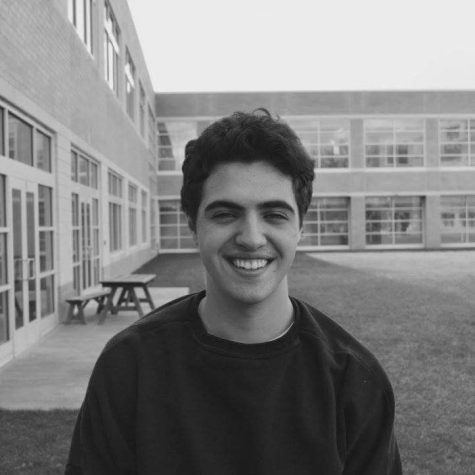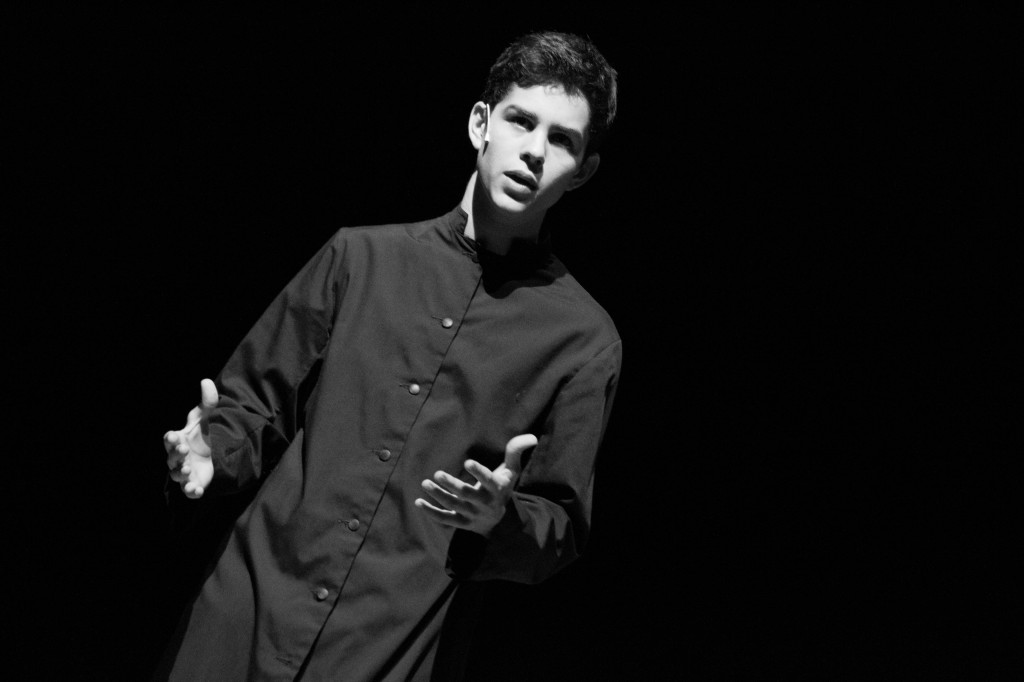“The Laramie Project” Backstage Review
Last week, the Harriton Theatre Company debuted its newest play, “The Laramie Project,” in the school auditorium. This is the first of three productions that will take place this year. “The Laramie Project” was a far cry from the joyous, bright, and entertaining musical, “The Drowsy Chaperone,” that was put on last spring. “The Laramie Project” was a poignant take on the modern day American LGBT struggle for equality, and one of the major events that has taken place since the beginning of the movement with the Stonewall Riots.
Taking place in 1998 following the death of gay student Matthew Shepard, the play follows a group of playwrights and actors who travel to Laramie, Wyoming, the place where Mr. Shepard was tortured and murdered. The theater company interviewed many people within the little city, prying deeper into the homophobia of a town, state, and country. Out of the interviews came responses that were sickening, surprising, and tear jerking, and made for an expressive script.
HTC had a little over a month to get everything ready for the production. As I was a member of the cast I can personally say we performed the show with raw grittiness, not holding back anything, and did the play with true feeling. Though my perspective was from the side of the stage most of the time, if I was not on stage acting alongside everyone else, I saw the cast put effort into every line, and many of the audience members and the performers began to feel something pulling at all of our hearts, a sympathy that was so true and strong it brought many to tears.
The theatrics were minimal, the costumes marginal, and the set was a stark, naked stage with a few set pieces, leaving a lot to the imagination. Luckily, the entire cast and crew were able to paint a portrait for the viewers, with every actor embracing their part. There may have been actors with more or less lines, but there were no main roles, no character more important than another. Each member of the cast brought something equally vital to the table.
What most people do not understand about a high school production is the amount of energy and work exerted towards the final show. From every actor to every stage manager and everything in between, a copious amount of work is put in. This show was my first of hopefully many HTC shows to come, and I could not have asked for a better learning experience. In my life, I have enjoyed acting from a young age all the way until now. I transitioned from the fun, low-key musicals that made up most of my young life and suddenly was hit by the seriousness of theater. In fact, this was the first stage production I had ever done where each scene was not infused with music and dance.
As a cast member, and like many of the others, as I went on, I more and more realized the reality this play covers. This was not “Joseph and the Amazing Technicolor® Dreamcoat” or “Annie”. This story was so substantial in its content that it was profoundly solemn. And it honestly came at me like a baseball. Something that the director, Mr. Ginsberg, continued to tell us was that not a single word of this play could be wasted. The writers selected the most crucial and important information of the story, and to not say it right would be a disservice to the writers and to Matthew.
This is something that took a lot of time and hard work for me, and many others, to understand. What most of us had to remember was that these people were probably sitting at home, drinking coffee while reading the newspaper, doing everyday things while we were trying our best to comprehend everything they said. It was emotionally tolling at times to try and enter that place of sadness, angst, or hate. At the end, however, I found myself standing backstage, seeing the last line being spoken, listening to the last words, hearing the Wyoming wind blow, and feeling an indescribable chill down my spine that was new. It was incredible.
I do not know if this was how everyone else felt, but my feeling is that we as a company did Matthew a favor by letting people know that this is what happens in the real world. There is no Broadway showstopper in which someone is killed, and there is no comic relief for when the family finds out. There is the ability to learn from society’s mistakes, and to teach others that there are ways to be better as people. I know that HTC taught the audience. Maybe aunts and uncles in the audience who may have been homophobic in the past stopped for a second and felt sympathy for once in their lives. That is the greatest goal I think we most likely could have achieved.
A special thank you to all the heads of departments in HTC; without them the show could not have been as outstanding as it was. They are just as big of a part as every actor in the show, every line spoken.

Joel Danilewitz is a senior and is proud to be a part of the Banner community! Joel has been writing with the Banner since he was a freshman, and while...


